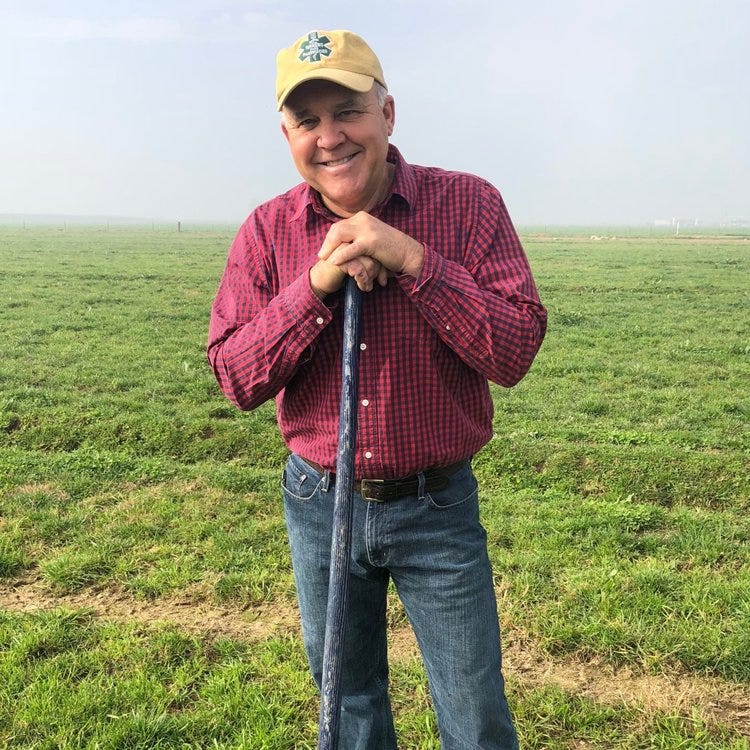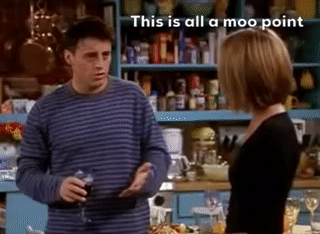Why it’s so hard to go after police for “excessive force”
A pair of cases demonstrates just how much power the cops have. (ALSO: Can you sell raw butter over state lines?)
Police officers pull people out of their cars and throw them to the ground every day. So why, today, am I focusing on a case in which an officer… pulled someone out of his car and threw him to the ground? Two reasons.
First, it happened in Southfield, Michigan. Southfield is where I grew up (248 represent!), spending my formative years learning how to do things like ride a bike, get good grades without trying too hard, and just generally function as a person in society. So even though the 70,000-person-strong metropolis 20 minutes north of Detroit has little going for it — apart from a beautiful public library and a memorable yearly fireworks show — it will always hold a special place in my heart. Which is why I was so disappointed to read that police there are no different from police anywhere else.
Second, Bell v. City of Southfield, decided last week by the Sixth Circuit Court of Appeals, provides a telling example of what often happens when citizens accuse their protectors of violating their constitutional rights through “excessive force.” Long story short: It’s hard to go after cops for violating your constitutional rights. Very hard. You have to prove that the police knew, beyond a shadow of a doubt, that what they were doing was unconstitutional. If it’s a gray area — if reasonable minds can differ on whether the force was clearly unconstitutional — the cop wins.
The police encounter
Gene Bell, Jr., a Black man in his sixties, was pulled over by the Southfield Police. Officer Anthonie Korkis asked for his license, registration, and insurance. Bell refused, asking to know why the officer had pulled him over. The officer said he needed Bell’s paperwork first. Bell said he needed to know why he was being pulled over first. “Why? What did I do wrong?”
This stand-off went on for several minutes.
There was a perfectly valid reason for Bell‘a traffic stop: When the cops randomly searched his plate, it didn’t come up in the system. In other words, the car wasn’t registered. Officer Korkis could have said as much (even though he’s not legally required to). Instead, the officer threatened to arrest Bell for “resisting and obstructing.”
“This is going to be the last time I’m going to ask you.”
At this point, Bell said he was going to remove his seatbelt and get out of the car.
“We’re going to do it our way,” Officer Korkis said. By this time, backup had arrived, and now multiple officers were reaching through the window of Bell’s SUV.
Police dashcam video captures the entire stop. “Don’t do it! Boy, I’ll break your fucking hand!”
“Whatchu call me??”
“I will break your fucking hand!”
“You call me a boy? Did you call me a boy?”
“Don’t do it!”
“Sir, I’m getting out.”
“No you’re not. You’re getting out our way now.”
Their way entailed opening the door, struggling with Mr. Bell in the car, pulling him out by force, slamming him face down to the ground, grabbing his arms and trying to pin them behind his back, and tasing him multiple times, as the elderly man proclaims, “I’m not resisting anybody!”
None of this should come as a surprise. By now we’ve all read these accounts, and seen videos like this one. The more cynical among us might actually breathe a sigh of relief that the police didn’t decide to shoot the Black man on the spot. (See, e.g., Garfield, Bob: “Lowest Bar Ever: CNN finds it touching and newsworthy when a white state trooper does not shoot a Black motorist to death.”)
Despite society’s low bar for what constitutes acceptable police conduct, Mr. Bell still found the officers’ actions to be grossly unreasonable, a clear example of “excessive force” prohibited by the Fourth Amendment. So he sued.
The court decision
The police tried to get the whole case thrown out, arguing they had “qualified immunity” — i.e., they were just doing what cops do — and couldn’t be sued. Surprisingly, the district court judge denied the cops’ motion to dismiss. “There was no apparent reason for the officers to forcibly remove Plaintiff from the vehicle and slam him to the ground when they had not attempted to place him in handcuffs,” Judge Gershwin Drain wrote.
Mr. Bell’s judicial good fortune took a turn last week, when, in a unanimous decision, the Sixth Circuit found that the officers were entitled to at least a bit of qualified immunity — specifically, for the part of the encounter in which officers tased Mr. Bell when he was on the ground. “Indisputable video evidence shows Bell actively resisting — he repeatedly pulled his left arm away … to avoid the handcuff (even after officers warned that he would be tased if he didn’t comply),” the court wrote.
The Supreme Court has held that police are always protected from civil liability by qualified immunity unless they violated a “clearly established” constitutional right. And courts have held that it’s okay to tase someone if they’re actively resisting arrest. So, since the cops hadn’t done anything out of the ordinary, they’re protected.1
In other words, unless the courts have clearly said the police can’t do something… they can.2
The case will now go back to the lower court, where it will continue — but only as to whether the police used excessive force when they struggled with Mr. Bell, pulled him from the car, and slammed him to the ground. Since the police do this sort of thing all the time, things don’t look good for Mr. Bell.
What about shooting a suicidal suspect in the head?
It’s worth contrasting Mr. Bell’s case with another decided last week in the Eleventh Circuit, which covers Florida, Alabama, and Georgia.
While babysitting his girlfriend’s toddler in 2014, Nicholas Wade beat the child so severely that the boy later died at the hospital. When DeKalb County Sheriff’s officers came to arrest Mr. Wade for murder, they found him sitting in a parking lot holding a sawed-off shotgun to his face.
*Warning: This gets graphic.*
As four cops approached from both sides of the vehicle, Mr. Wade turned his head toward the passenger side. Without warning, Officer Solomon Daniels on the driver’s side quickly fired three shots, hitting Mr. Wade in the head, shoulder, and leg. Wade crumpled; Daniels exclaimed “I shot that motherfucker in the head!” and bragged that he “will die any minute.”
Before Mr. Wade had a chance to die, the other officers opened the passenger door, handcuffed him, searched him for weapons, and pinned him down. As blood filled his mouth, Mr. Wade began suffocating. He asked the officer holding him down if she would let him sit up so he could breathe. Still handcuffed, he moved her hands away and tried to sit up. In response, Officer Victor Jones “slammed his handgun against Wade’s face, chipping his tooth, and causing lacerations to his face and mouth.”
Mr. Wade did not die. Instead, he sued the police for violating his constitutional rights. Mr. Wade argued that 1) Officer Daniels used excessive force in shooting him three times; 2) Officer Jones used excessive force in pistol-whipping him; and 3) multiple officers violated his Fourteenth Amendment right to due process when they didn’t call for an ambulance until four minutes after shooting him.
Were the cops’ actions excessive? Maybe. Excessive enough to strip the cops’ qualified immunity and make them personally liable? In two of the three claims, the court said the cops could not be held liable.
Regarding the gunshots, “even assuming that Daniels’s use of deadly force was unreasonable, the unlawfulness of his conduct was not clearly established at the time,” the court wrote. Because there wasn’t any existing case law clearly establishing the principle that “shooting a suicidal individual who is holding a gun” constitutes excessive force, that wasn’t a constitutional violation.
Unless the courts have clearly said the police can’t do something… they can.
How about waiting four minutes before calling an ambulance? It wasn’t just those few cops, either; eleven investigators were standing around, not doing anything. “And the investigators have failed to point the court to any evidence in the record providing an explanation for what could have preoccupied [them] while Wade had three gunshot wounds and his mouth filled with blood.”
So yes, the court said, Mr. Wade met his burden to show that his constitutional rights were violated. Yet, the court still refused to strip the officers of qualified immunity! “Although it is clearly established that an officer cannot ignore an individual’s serious medical condition, we have not drawn a bright-line rule on how long before officers must seek medical care for a suspect that has been shot to constitute deliberate indifference.”
Again: Unless the police are on notice that they can’t do something… they can. Sensing a theme?
Pistol-whipping, on the other hand…
So, can the cops get away with anything? Yes — unless the courts have explicitly said they can’t. Which brings us to the pistol-whipping.
Mr. Wade no longer posed an immediate threat of harm to anyone. He was severely injured from three gunshot wounds. He was not actively resisting. Striking Mr. Wade in the face with a pistol was unreasonable “gratuitous use of force,” the court wrote. So… is that enough to strip Officer Jones’s qualified immunity?
Yes! Because the Eleventh Circuit has long ruled that “gratuitous use of force when a criminal suspect is not resisting arrest constitutes excessive force.” Because the court had made it clear that they read this principle broadly, the police were on notice that you can’t do stuff like this.
No matter how many times you’ve seen it in the movies.
And no matter how much it makes you feel like a badass.
AROUND THE COUNTRY
California dairy farmer Mark McAfee wanted to sell raw butter outside of his home state. The Food and Drug Administration denied the request, since McAfee’s butter isn’t pasteurized, and they’ve got a rule that you can’t sell raw unpasteurized butter across state lines.
But wait! the farmer said in a lawsuit. Nowhere in the law is “butter” defined as pasteurized! You can’t just require pasteurization without having a special rulemaking session and asking the public for comment!
In a ruling this month, the D.C. Circuit Court of Appeals sided with the FDA, finding that the FDA is allowed to require pasteurization generally, and it doesn’t need a special rulemaking session to apply the requirement to butter. And the court quoted another judge, who found that Farmer McAfee’s challenges “completely miss the mark.”
So you can’t buy Farmer McAfee’s raw dairy outside of California. Actually, judging by the “sold out” signs all over his website, you can’t buy it in California either. Guess the whole controversy is moo! Get it? Moo?
And that’s the Schwartz Report! If you’ve enjoyed this newsletter, please leave a comment, forward it to a friend, click that little heart button on the website, and share it far and wide.
And if you really want to support my crazy endeavor to try to make the law fun and interesting to regular people, please consider becoming a paying subscriber! You’ll be supporting all the work we do here at Unprecedented, and you’ll also get access to occasional subscriber-only bonus posts. Thank you for your support.
Sincerely,
Matthew S. Schwartz
Editor, Unprecedented
It’s worth pointing out that District Court Judge Drain, viewing the same dashcam video as the appeals court, found that Mr. Bell was not actively resisting. “The verifiable facts from the in-car videos tend to support, rather than contradict, Plaintiff’s allegations that he did not pose a threat to officers or the public.” Unfortunately for Mr. Bell, Judge Drain doesn’t get the final say.
In the law, there are exceptions to everything — even exceptions to exceptions. Courts have also held that if a cop’s conduct is so obviously beyond the pale, there doesn’t need to be prior case law explicitly establishing that something is unconstitutional. But that’s a really high bar.








Thank u for sharing!
It might be factual that most police interactions with other human beings are unremarkable (and that's not nothing), but when bad cops are protected and when the system prevents reform, then trust cannot happen. One must assume all police officers are bad actors (until shown otherwise).